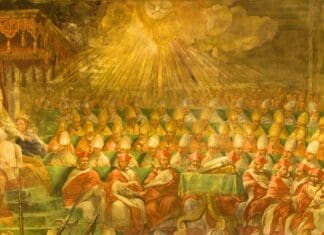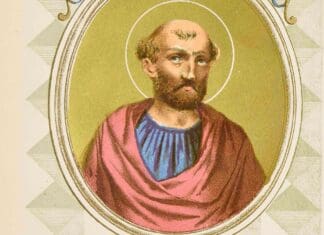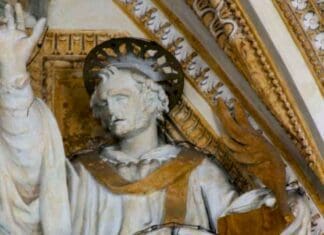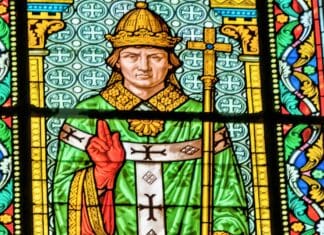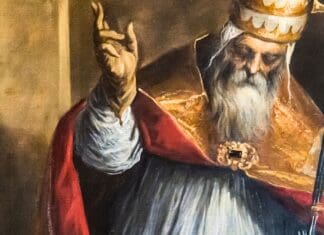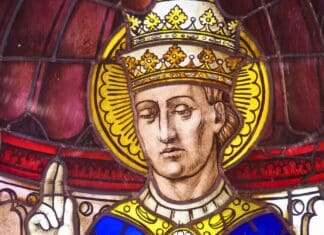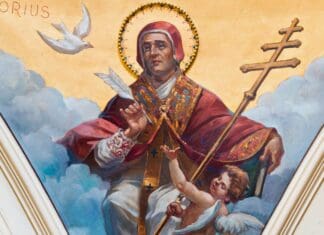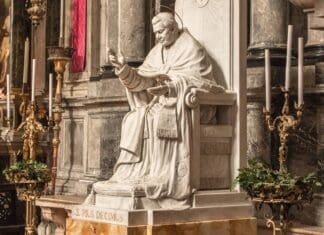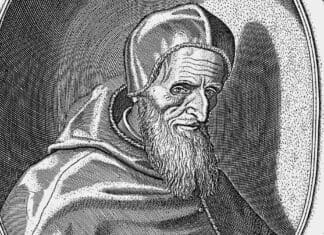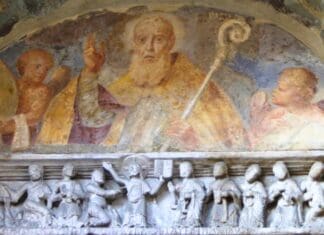Pope Saint Sylvester
Pope Saint Sylvester surely was appointed by God to govern his holy church in the first years of her temporal prosperity and triumph over her persecuting enemies. His pontificate was one of the most important, crucial and eventful of all Popes.
Pope Saint Telesphorus
Pope Saint Telesphorus, a Greek anchorite, led the Church under Emperor Antoninus Pius and established enduring Christian practices around 125-138 AD.
Pope Saint Hyginus
Pope Saint Hyginus, a Greek, led the Roman Church (138-140 AD), structuring clergy hierarchy and mandating church consecration, but his exact history remains unclear.
Blessed Pope Urban V
Pope Urban V, born Guillaume de Grimoard, was a spiritual leader and reformer, known for his humility, scholarly pursuits, and efforts to restore papal prestige.
Pope Saint Cletus
Pope Saint Cletus, the third Pope, governed the Roman Church from about 76 to about 88 during the reigns of the Emperor Vespasian and of Domitian.
Pope Saint Celestine V
Pope Saint Celestine V reigned a mere five months. The primary objective of his pontificate was to reform clergy. He abdicated on 13 December 1294, the last pope to do so until Pope Benedict XVI.
Pope Saint Gregory The Great
Pope St. Gregory, a Roman noble, became a monk, then Pope, known for church reforms, aiding the poor, and Gregorian Chant.
Pope Saint Pius X
Pope Saint Pius X exemplified saintly virtues like piety, humility, charity, and pastoral zeal, deeply shaping the Catholic Church.
Pope Saint Pius V
Dominican pontiff who convened Council of Trent, excommunicated Elizabeth I, patronized Palestrina, and led Holy League at Lepanto.
Pope Saint Hilarius
Pope Saint Hilarius, successor to Saint Leo, confirmed council works, combated Nestorianism, held Roman Councils, and enhanced church architecture; papal legate; died in 468.


